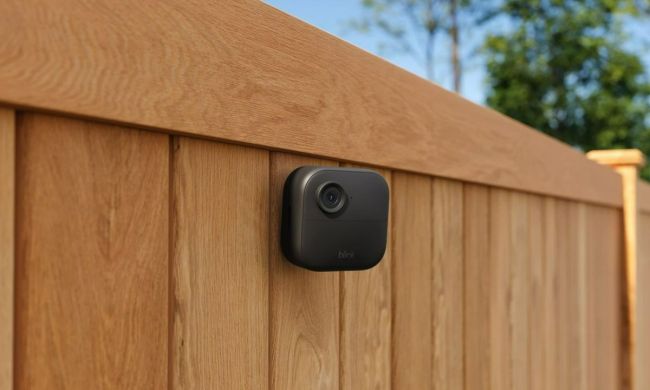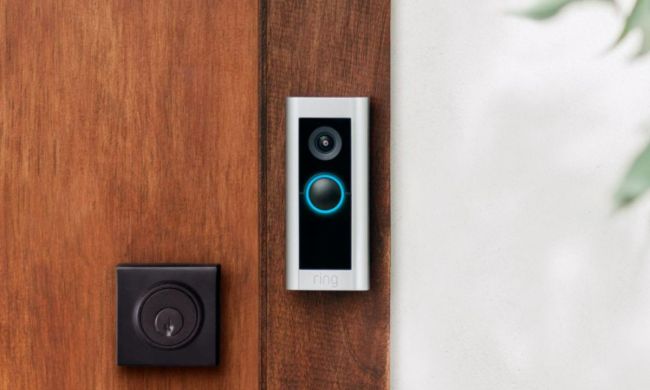When it comes to security cameras, there are a lot of different factors in choosing the best one for you. Between innovative features, hardware components, and the ecosystem you use at home, there’s no shortage of cameras that can be a perfect fit. Resolution is a key differentiator, but what kind of image quality do you need? We’re going to explain the difference between 4K or 1080p security cameras.
As is the case with digital cameras, just because one camera has a higher megapixel count doesn’t automatically mean the camera is better. These numbers have different situations in which they prevail. So let’s dive in and see which camera resolution is right for your particular circumstance.
Defining resolutions

Resolution numbers are determined by the size of the image the camera records. For example, 1080p means the image the camera can capture can be up to 1080 pixels in height by 1920 pixels in length. Typically, cameras need at least a 2 MP sensor to capture 1080p. When you hear someone mention high-definition, it usually means 1080p or higher, although it might also refer to 720p.
By comparison, 4K is four times as big or as detailed as 1080p. A 4k image equates to one that’s 2160 pixels in height paired with 3840 pixels in width. The camera would have to have at least an 8MP sensor to get this level of detail.
Features
There are definitely different parts of taking a photo or video to consider when discussing resolution. First, let’s talk about the surveillance coverage. Resolution doesn’t determine field of view, but a 4K camera will show more detail in an image than a 1080p camera.
This field of view difference really comes into effect depending on the location you want to cover. At longer distances, such as a parking lot, a 4K camera can show faces more clearly. Within a home or somewhere at a shorter distance, 1080p can depict faces.
Secondly, 4K captures so much more detail and information than 1080p. This detail can easily be seen in the storage sizes of the videos. Five 4K cameras will require a much higher amount of storage than five 1080p cameras. Hard drives usually aren’t the most expensive thing to consider when setting up your system, but the storage requirement is something to consider.
Also, with that much detail, you can see more in the frame. You can zoom in farther with 4K resolution without the image becoming unviewable. To capture lettering or other small details in the recording, 4K is your best bet.
Another thing to consider is the hardware needed to run 4K security cameras over 1080p cameras. These resource needs come down to your monitor as well. While you don’t necessarily need a 4K monitor to view the extra detail in a 4K camera, you’d be wasting most of the advantages. It would be best to have a 4K capable TV or monitor when equipping your system with 4K cameras. Luckily, 4K TVs aren’t that expensive nowadays, although monitors can still be somewhat pricey. You might also need more than one monitor depending on the size of your security system.
To circle back to the extra data captured by 4K cameras, detail can be affected with higher resolution sensors. Light, the main ingredient in capturing a good image, can affect the recordings more. Since 4K captures more data, it can capture more light, which may be harmful in an image. A bright light that shines into the 4K cameras may blow out the image. On the opposite end, low light may be more drastic on 4K compared with 1080p.
Price
The next and possibly most important thing to consider when choosing between a higher or lower-resolution camera system is the cost attached to each. Per camera, a 4K camera will cost more than a 1080p camera. This price difference is due to higher-powered hardware.
This price discrepancy goes back to the location that needs security. A house that only requires one camera in the backyard will be less expensive paired with the 1080p cameras system vs. the 4K.
Is 4K worth it?
Higher resolution is almost always better, but it depends on cost and other factors. Of course, looking at just numbers on a page, disregarding budget, 4K is purely better than a 1080p at capturing information and data. Better image quality means better security, but some security is better than none at all. If your budget is limited, 1080p is sufficient — but if it allows it, consider investing in 4K cameras.
FAQ
Is a 4K camera better than 1080p?
Purely talking about specs, 4K is objectively better than 1080p. It captures much more information and allows for a wider area of view.
Is 4K security cameras worth it?
4K cameras are worth the upgrade and price if you have the means to utilize its features. For example, if you only need surveillance for a residential home, paying extra for 4K cameras may not be required.
Is 1080p enough for a security camera?
1080p resolution is sufficient for a security camera depending on your surveillance needs. However, upgrading your camera choice would be more beneficial if you’re trying to secure a larger area or a small business.
Will 4K cameras work with 1080p DVR?
Yes, a 4K camera will work with a 1080p DVR, but you would lose the benefits of an upgraded resolution.




